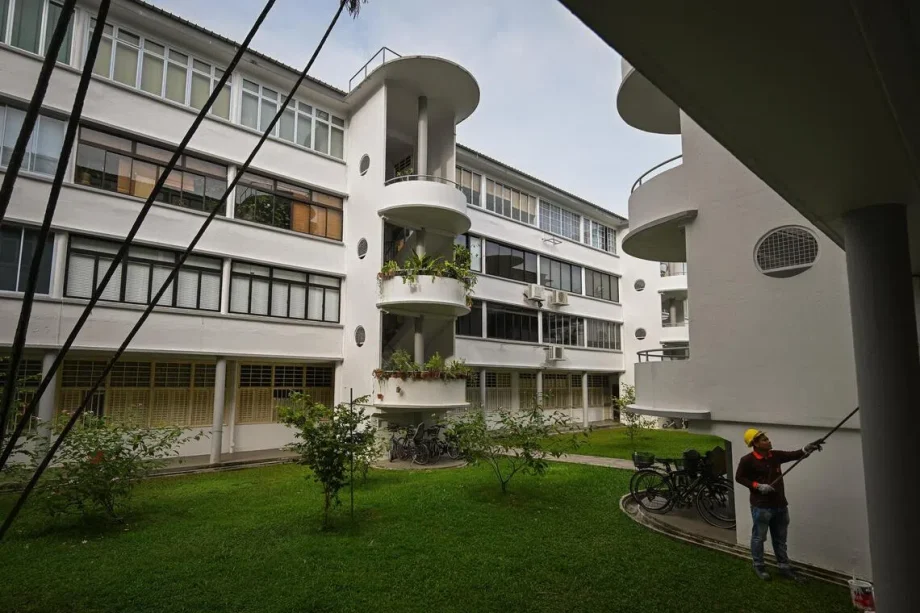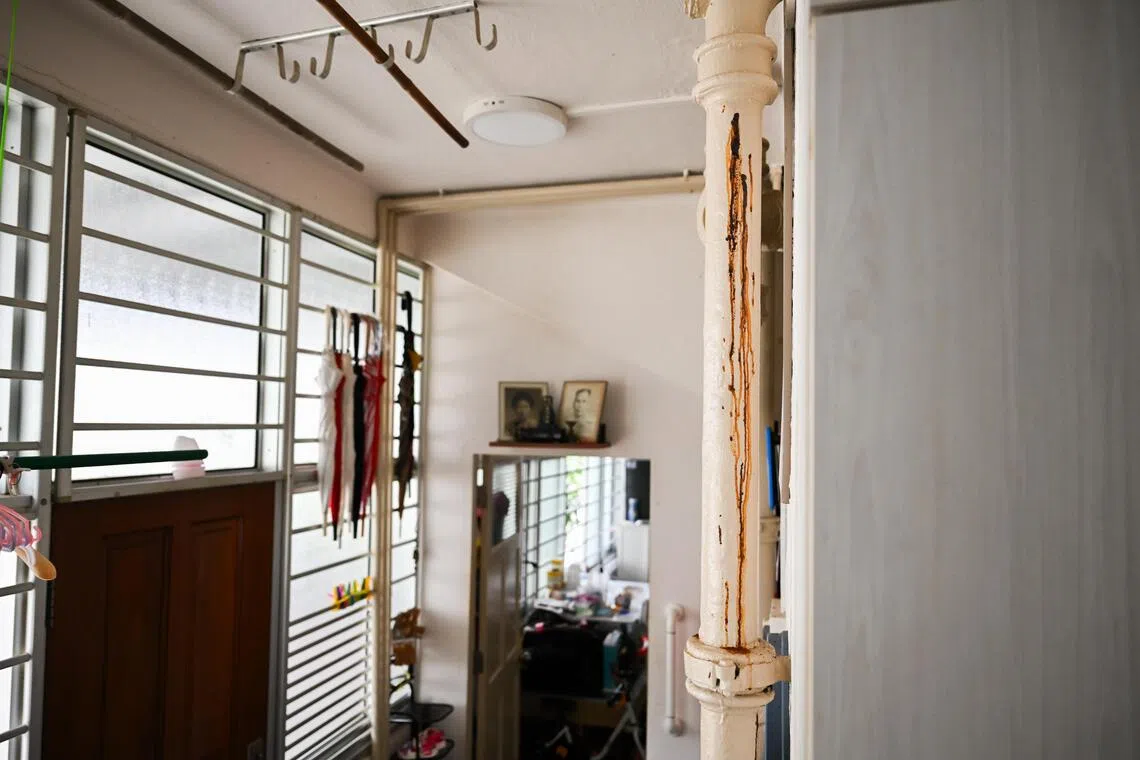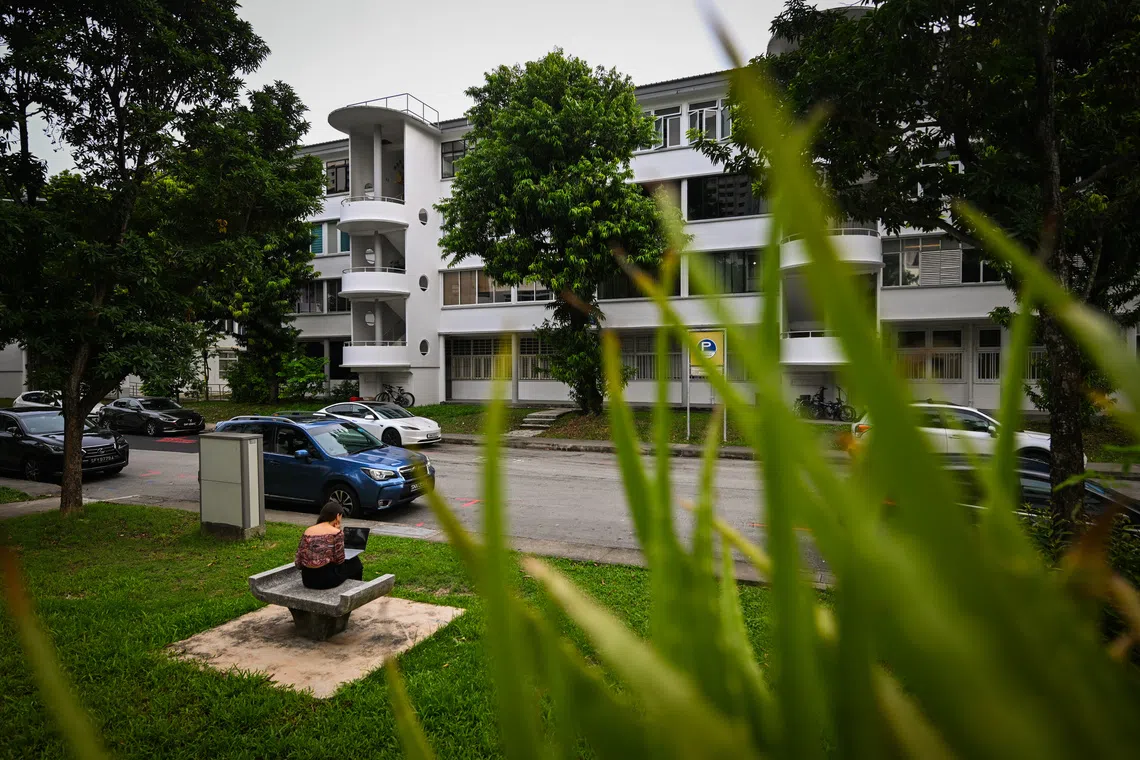SINGAPORE – Two blocks of Housing Board flats in Tiong Bahru built in 1949 have failed to get enough votes to undergo the Home Improvement Programme (HIP) – by a razor-thin margin.
Residents there told The Straits Times they were disappointed by the outcome as they had hoped for improvements to their ageing flats.
At Block 35 Lim Liak Street, only one “yes” vote was needed to pass the 75 per cent threshold, poll results published on Nov 21 showed. Of the block’s 15 households, 11 voted for the HIP, while four did not vote.
Of the 24 units in Block 34 Kim Cheng Street, 16 households voted in favour of HIP, two voted against and six did not vote. Two more votes were needed to pass the voting threshold.
The two blocks were among 29 in Tiong Bahru that voted earlier in November on whether or not to carry out HIP improvements. Voting was successful for the other 27 blocks. All four-storey walk-up flats were built by the Singapore Improvement Trust, the predecessor to the HDB.
The HIP, which is offered to older HDB flats, was launched in 2007 to spruce up older housing estates and resolve common maintenance problems such as spalling concrete. It is carried out only if at least 75 per cent of a block’s eligible Singapore citizen households have voted for it. Permanent resident households are not eligible to vote.
If the vote passes, residents have to undergo some compulsory works such as repairing spalling concrete but can opt out of other improvements such as bathroom upgrading.
Mr Robin Loi, 70, who has lived in his three-room flat at Block 34 since the 1970s, said he had hoped the HIP would replace the cast iron pipes in his service yard as well as his rusty front gate.
The retired admin officer said the pipes had been leaking over the past 20 years and burst three years ago. Replacing the pipes, which was offered for free as part of the HIP’s mandatory improvement works, would set him back about $300.
“I’m disappointed, but there’s nothing much I can do now,” he said.








